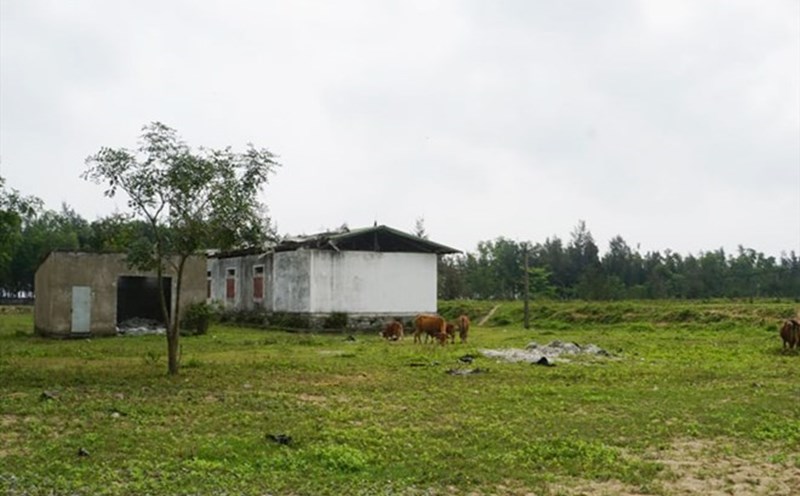Cooperatives help business households access capital more easily
The seminar "Green transformation - The vital task of businesses" is part of a series of events on Green Transformation Day 2025, organized by the Vietnam General Confederation of Labor, Lao Dong Newspaper in coordination with the Ministry of Agriculture and Environment, with the theme "Green transformation - Joining hands for a sustainable Vietnam development".
At the seminar, Dr. Nguyen Quoc Viet - Economic expert, University of Economics (UEB) emphasized the role of policies and laws in supporting businesses.
He said that policies on credit guarantee and mobilization are already important contents. This is also a topic of heated discussion at many seminars with the participation of domestic and foreign enterprises.
According to TS. Nguyen Quoc Viet, first of all, we need to classify the characteristics and models of the projects to have appropriate solutions. For large -scale projects, the Government has mechanisms such as the Law on Investment and Public Private Cooperation (PPP) to promote the role of the private sector. Through these mechanisms, the State can order large businesses to participate in infrastructure development projects and key economic fields. This is a form of cooperation to help the State effectively take advantage of social capital sources and minimize financial risks.
However, at the micro level, especially in the agricultural and service sectors, we have up to 10 million farming households and 5 million small-scale business households. These are subjects with great capital needs but the ability to access credit capital is still limited. Loans are often small, spontaneous and not enough to carry out large-scale projects.
Many business households have proposed to have a centralized credit support policy, through cooperatives or joint venture models. At that time, the cooperative can act as a credit guarantee unit, helping member businesses access capital sources more easily. For example, in green transformation projects, instead of each business household borrowing capital itself, cooperatives can gather needs and representatives to borrow capital with higher credit levels.

Solutions to prevent exchange rate risks for businesses
For larger projects in industrial parks, businesses have the opportunity to access international capital such as international credit or issue bonds. However, these enterprises often face macro risks, especially exchange rate risks. When the exchange rate fluctuates strongly, the cost of repaying debts of enterprises will increase, directly affecting financial efficiency. So, the question is whether we have mechanisms to prevent and support this risk?
Having guaranteed or financial support policies from the State will help businesses feel more secure when accessing international capital sources. Businesses also need to proactively develop solutions to prevent exchange rate risks, such as using derivatives or financial insurance products.
A real example is in the renewable energy sector, businesses are interested in solar power but have difficulty accessing large credit packages. In this case, industrial park management boards can act as intermediaries, gathering small solar power projects into a larger project. At that time, borrowing capital from financial institutions will be easier, with more preferential interest rates.
Finally, to make policies truly effective, there needs to be close coordination between Government agencies such as the Ministry of Finance, the Ministry of Industry and Trade, the State Bank and the Ministry of Natural Resources and Environment. The synchronization of policies from the central to local levels will create a favorable environment for businesses in the process of capital mobilization and project implementation.
In addition, I also think that classifying the needs and business models according to each industry and scale of operations is very important. Each group of businesses will have their own characteristics, requiring specific support policies, which cannot be applied simultaneously. This will help improve the effectiveness of policies and ensure that financial resources are properly allocated.
Credit guarantee and capital support policies need to be built on the basis of a clear classification of the scale and characteristics of enterprises. At the same time, there should be exchange rate risk prevention mechanisms, effective credit support solutions and synchronous coordination between management agencies to promote the sustainable development of Vietnamese enterprises.












